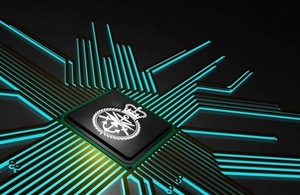Dstl announces SERAPIS framework agreement
The Ministry of Defence (MOD) and the Defence Science and Technology Laboratory (Dstl) has announced the industrial partners to lead on the delivery of the SERAPIS framework agreement.

The SERAPIS framework agreement has been created to enable Dstl to influence and gain access to the most diverse expertise and talent available across the industrial supplier base, particularly in relation to -
-
Small and Medium Enterprise (SME) companies
-
Non-Traditional Defence Suppliers (NTDS), and
-
Academia
Vicki Shepherd, Dstl Head of Commercial Services, said:
The awarding of these contracts, under the SERAPIS framework agreement, represents a major success in Dstl improving its commercial agility and industry engagement in delivering world-class science and technology for the defence and security of the UK, The framework agreement is purposefully supportive in our strategy aims to grow the S&T ecosystem and will simultaneously contribute positively towards MOD’s SME spend targets by 2022.
A key objective for setting up the SERAPIS framework agreement is to significantly expand and deepen Dstl’s access to the external research supply chain in support of delivering its C4ISR and Space programmes, particularly with respect to non-traditional defence suppliers, SMEs and academia.
Richard Millidge, SERAPIS’ Project Technical Authority, said:
This ambition is a key performance measure that will be placed on the industrial leads of the six framework lots. Although primarily serving the research needs of CIS and DSA Divisions, we are fully expecting the framework to be used widely across Dstl, other MOD organisations such as DE&S, ISS and the front line commands, but also across government as well. Collaboration, partnership and innovation are key aspects that we are actively encouraging through the framework.
The SERAPIS framework agreement has been designed to accommodate and build upon the success of previous framework agreements while increasing Commercial Agility, Diversity, Transparency and Collaboration.
Its core objective is to develop new and battle-winning capabilities within C4ISR (command, control, computers, communication, intelligence, surveillance and reconnaissance), space systems, synthetic environment and simulation technologies, and to see them brought through to operational use in a timely and efficient manner.
This will be achieved via six capability areas; or ‘Lots’,
Lot 1: Roke Manor Research Ltd will cover the development and integration of new and emerging ISTAR ‘Collect’ technology and techniques into the wider defence and cross-government ISTAR enterprise. Includes a broad range of conventional and novel sensing technology (incl. quantum, gravity and biometric sensing), but also Open Source (OSINT) and HUMINT data and information collection capabilities.
Lot 2: BAE Systems Applied Intelligence Ltd will cover all aspects of defence and security space systems from underpinning enabling services such as space-specific analysis; fundamental and applied space research for areas such as the space environment; design and manufacture of space equipment and sub-systems; space launch & range; through-life operation of satellites (including ground station), or terrestrial-based space systems like those used for the surveillance of space; through to the application of space systems for defence and security exploitation/benefit.
Lot 3: QinetiQ Ltd will cover the development, testing, and evaluation of novel Command and Control (C2) concepts and systems to improve sense-making, battlespace management, resilience and decision making. The research will also examine issues on the relationship between human and autonomous (machine) systems and artificial intelligence (AI) in the context of complex, and often information degraded, operational environments.
Lot 4: QinetiQ Ltd will cover the development of C4ISR communications and networks and will aim to exploit and drive emerging concepts and technology in military and civilian communications infrastructure. This included the development of policy, technology and architectural options for the provision of assured information, Information Management and Exploitation (IM/IX).
Lot 5: NSC will cover the development of synthetic environments, modelling and simulation, and associated tools. Including the development of assessment processes to allow Defence to train, exercise and prepare for operations and to test, evaluate and assess the performance of military capabilities across the C4ISR enterprise. The research will also cover how these capabilities are and enhanced and sustained across all defence applications.
Lot 6: Frazer-Nash Consultancy Ltd covers the development of data analytics and information processing tools and techniques in support of defence’s decision-making processes and techniques (covered in Lot 3). Includes the development and application of autonomy, AI and Machine Learning, information and visualisation and man-machine interface development.
If you would like further information about the SERAPIS framework agreement, please email DstlSerapis@dstl.gov.uk